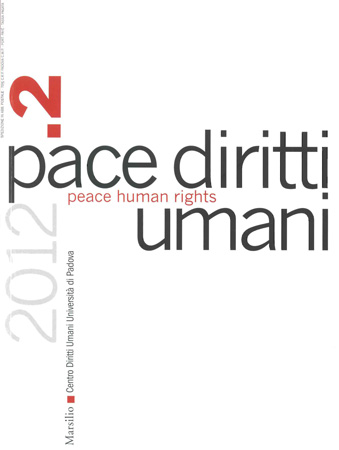Raccolte

L’educazione ai diritti umani per una cittadinanza plurale nello spazio pubblico glocale
- Contenuto in
- Pace diritti umani - Peace Human Rights, 2/2012
- Tipologia pubblicazione
- Articolo / Saggio
- Pagine
- 59-82
- Lingua
- IT
Human Rights Education for a Plural Citizenship in the Public Glocal Space
Starting from the assumption that human rights lie at the heart of any democratic constitution, the author argues that the latter and citizenship constitute an indissociable binomial. International recognition of fundamental rights does enlarge both the concept and the operative space of citizenship. The new concept is that of plural citizenship, combining national anagraphic citizenships with the universal citizenship that coincides with the original legal status of every member of the human family. The advent of international law of human rights has given way to what the author calls plenitudo iuris, the fulness of law in the glocal space of the earth. After surveying the evolution of human rights international law, that demonstrates its immanent spill-over dynamism – thus its real universalist strength –, the author argues that plenitudo civitatis, the fulness of citizenship, is a consequential result of the fulness of law. States are urged to review their legislations to make their respective citizenships respectful of the ius humanae dignitatis, as the benchmark that should prevail on the old discriminatory. Human rights education and training, as a powerful instrument for capacity building, should focus on those concepts by using, in particular, three international legal instruments: the United Nations Declaration on the Right and Responsibility of Individuals, Groups and Organs of Society to Protect and Promote Universally Recognised Human Rights and Fundamental Freedoms (1998: so-called Charter of Human Rights Defenders), the United Nations Declaration on Human Rights Education and Training (2011), and the Council of Europe Charter on Education for Democratic Citizenship and Human Rights Education (2010).

